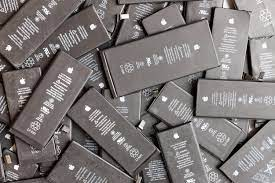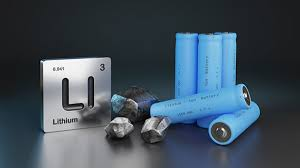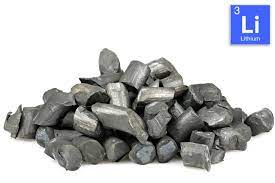You can call it white oil; it is a treasure more precious than rare earth and black oil.
This so-called “white oil” is the lithium we are all familiar with. Due to its scarcity and the fact that it exists in nature as mostly white minerals, it is known as “white petroleum.”
As “the least dense metal,” “the element with the most negative potential electrode and the strongest metal activity,” lithium has always been very precious to us because it not only has a wide range of applications and is difficult to replace in function, but is also extremely difficult to extract from nature. It is precisely because of this that everyone flocks to it.
Lithium was discovered much later than potassium and sodium. On the one hand, this is because the lithium content in the earth’s crust is less than that of potassium and sodium, and on the other hand, it is because lithium is not highly polymerizable. Most lithium elements in nature exist in compounds in a very thin form, which makes extraction more difficult.
Brazilians discovered the world’s first lithium ore on a Swedish island in the 1790s. Since this lithium ore cannot be separated in large quantities by electrolysis, its name was originally “Lithium,” which refers to “stone” in Greek. Since the first pronunciation of the English name is “lithium,” another kind of metal, this element was later named “lithium.”
As a typical rare metal, lithium is a metal element that is not abundant in nature. Although it cannot be compared with potassium and sodium, it ranks 27th in terms of content, with about 0.0065% in the earth’s crust. Content and the total reserves in seawater are as high as 260 billion tons. Such a rich storage capacity is theoretically sufficient for our use. Still, the fact is that its concentration is too small, so it is very difficult to extract, which directly causes the scarcity of lithium.

Lithium resources in nature are mainly divided into salt lake brine lithium and ore solid lithium. The former is 61%, and the latter is only 34%. However, my country’s lithium resources are biased toward the former, and its extraction rate is completely incomparable with countries such as Australia, which have large amounts of lithium ore. Regarding industrialization technology related to lithium extraction from salt lakes, it lags behind countries such as the United States and Germany. This once put our country into a dilemma of abundant lithium resources but still needing to import lithium ore abroad.
In the beginning, when the application of lithium was not widespread enough, this issue could be brushed aside. However, as lithium is increasingly used in heavy industry, light industry and even human physiology, how to solve the scarcity of lithium elements has become A big problem.
Lithium resource applications are divided into three types: light industry, heavy industry and human physiology.
Among them, lithium-ion batteries are the most typical application in the light industry.
This advanced high-energy storage medium is widely used in our Bluetooth headsets, mobile phones, laptops and even cars. It is closely related to our daily lives. In the future, lithium will still have a trend of expanded application. With the promotion of new energy vehicles, this mysterious and magnificent element will surely become more familiar to people.
If the industrial applications of lithium and lithium compounds have been jaw-dropping, their impact on physiology will be even more beyond your imagination.

Lithium has a comprehensive impact on the body as an indispensable component of the human body. On the one hand, lithium can improve hematopoietic function and enhance the body’s immune function; on the other hand, lithium can regulate the central nervous system, control neurological disorders, help people calm down, and even treat acute mania and mania. Sexual depression.
If animals lack lithium in their bodies, they may suffer from reproductive abnormalities, behavioral changes and even shortened lifespans; this is more obvious in humans. According to research by scientists, the lower the concentration of lithium in drinking water, the higher the likelihood of suicide, robbery and other violent crimes in the surrounding area, and supplementing lithium to prisoners can effectively curb their emotions.
Because of the widespread use of lithium in our lives, more and more countries recognize its importance and regard it as a treasure.
Lithium Battery Anode Material Supplier
Synthetic Chemical Technology Co. Ltd., is an established global chemical material manufacturer and supplier with over 12 years’ experience in the production of high-quality nanomaterials.
We provide Lithium Battery Anode Material, nickel-based superalloy powders such as Inconel 718, Inconel 625, CoCrMo, CoCrW and other cobalt alloy powders, Ti6Al4V and other titanium alloy powders, AlSi10Mg, AlSi7Mg and other aluminium alloy powders, SS316L, H13, 18Ni300 and other ferroalloy powders, stainless steel powder, CuSn10, etc. 3D printing powder. Contact us via message or select the desired items to send us an inquiry.(sales5@nanotrun.com)
